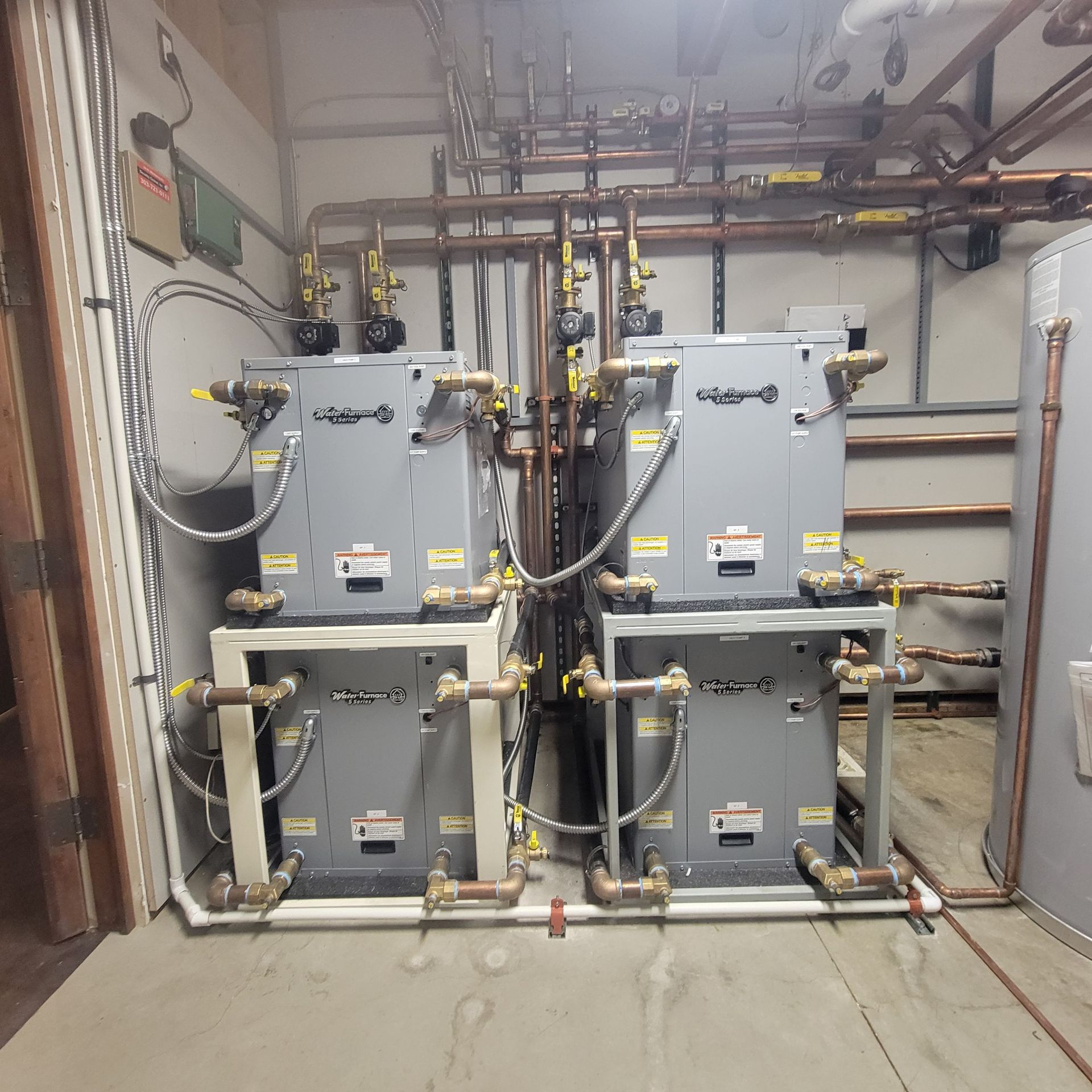Heat pumps for hydronic systems in Denver
Geothermal and air-source options for the Front Range

Modern heat pumps use electricity to move heat rather than generate it, offering efficient, year-round comfort through hydronic distribution. Advanced Hydronics designs systems that pair cold-climate air-source and geothermal technology with radiant floors, panel radiators, and fan coils for quiet, even performance. Whether all-electric or hybrid, our systems are engineered for Colorado’s climate and your comfort goals.
Cold-Climate Air-Source Heat Pumps
Efficient comfort in every season
Cold-climate air-source heat pumps draw heat from outdoor air, even in subfreezing temperatures, and deliver it to the hydronic system indoors. These units are ideal for homes looking to reduce or eliminate fossil fuels while maintaining steady, low-temperature comfort. Integrated controls balance performance between heating and cooling for efficient year-round operation.
Geothermal Heat Pumps
Ground-source efficiency and stability
Geothermal heat pumps transfer energy from the ground rather than the air, taking advantage of the earth’s stable temperature. They offer the highest efficiency and quietest operation among hydronic systems, with long equipment life and minimal outdoor footprint. Ideal for new construction or properties with available land for loop fields.
Dual-Fuel Systems
Smart balance between efficiency and resilience
Dual-fuel systems combine an electric heat pump with a gas or propane boiler for maximum flexibility. The heat pump handles most of the seasonal load, while the boiler provides backup during extreme cold or high domestic hot water demand. This hybrid approach delivers both lower energy costs and peace of mind during Colorado’s coldest days.
Choosing the Right Heat Pump
Selecting the right heat pump begins with climate, energy goals, and how your home distributes heat. Advanced Hydronics designs systems that balance efficiency, comfort, and resilience, whether that means an all-electric air-source unit, a geothermal loop for year-round stability, or a dual-fuel setup that combines the best of both. We evaluate each home’s loads, emitters, and controls to deliver dependable performance in every season.
Understanding Hydronic Heat Pumps
Do heat pumps work in Colorado’s cold climate?
Yes. Modern cold-climate air-source heat pumps are engineered to perform efficiently even in subfreezing temperatures. When properly sized and paired with hydronic distribution, they deliver steady comfort throughout the Front Range winter.
Can a heat pump connect to my existing hydronic system?
In many cases, yes. Hydronic heat pumps integrate with radiant floors, panel radiators, and fan coils using low-temperature water distribution. We evaluate your existing piping, emitters, and controls to confirm compatibility before installation.
How efficient are hydronic heat pump systems?
Heat pumps move heat rather than generate it, which allows them to deliver two to five times more energy than they consume. Paired with outdoor reset controls and proper zoning, they provide some of the highest efficiency levels available for hydronic heating.
Do heat pumps provide cooling too?
Yes. Most hydronic heat pumps can reverse operation to provide chilled water for cooling through fan coils or radiant floors. We design control strategies that keep humidity balanced and comfort consistent through summer.
What maintenance do hydronic heat pumps require?
Routine service includes checking refrigerant pressures, verifying sensors, and cleaning air coils or filters. Hydronic components such as pumps, valves, and water chemistry should also be inspected annually to ensure system longevity and performance.
Are heat pumps environmentally friendly?
Yes. Heat pumps produce no on-site combustion and can be powered by renewable electricity. They significantly reduce carbon emissions compared to traditional fossil-fuel systems while maintaining excellent comfort and control.
